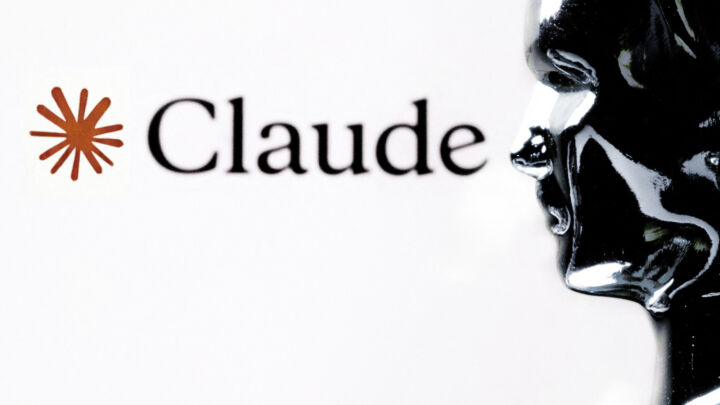‘Waaah, it’s all Blair’s fault!’
Making simplistic links between British interventions abroad and alleged terror plots at home is NIMBYism dressed up in anti-war garb.

Want unlimited, ad-free access? Become a spiked supporter.
On the same day that British police arrested 24 men suspected of plotting to blow up planes travelling from Britain to the US, former BBC war correspondent Martin Bell wrote a 113-word piece for the Guardian website in which he declared that the plot was a protest against British foreign policy. Under the headline ‘Connecting the dots’, he insinuated that the Blair government’s involvement in the wars in Iraq and Afghanistan, and its failure to call for a ceasefire in the Middle East, had put the rest of us at danger.
So that you can get the full flavour of Bell’s argument (for want of a better word) here is his article in full: ‘Alone among the countries of Europe, Britain pursues a foreign policy indistinguishable from that of the United States. Alone among the countries of Europe, Britain has not pressed for an immediate ceasefire in the month-long Middle East conflict. Alone among the countries of Europe, Britain has played a leading part in waging a war described by the United Nations as illegal. Now our diplomacy is sidelined. Our voice is an echo. Our moral authority scarcely exists. Our people are the targets of terrorism and the threats of terrorism, wherever they are, and whether they travel by underground or in the air. Our government has endangered us. It is time we connected the dots.’ (1)
It used to be conspiracy theorists who ‘connected the dots’ between various events to prove that there was a hidden hand or influence at work. Or else ‘joining the dots’ was better known as the pastime of children armed with crayons and a colouring-in book. Now it seems respectable reporters are getting in on the dot-to-dot act, substituting instantaneous line-drawing for an analysis of the facts. So even before we knew who had been arrested, whether they were serious about or capable of blowing up planes (something we’re still unsure of), or what their beef might have been, Bell was telling us that they were the angry byproduct of an uncaring British foreign policy.
Bell’s premature speculation shows that today’s arguments about British intervention abroad giving rise to terrorism at home are not really arguments at all. They are reflex spasms; emotional outbursts that follow every terror attack and which are best summed up as saying: ‘Waaah, it’s all Blair’s fault!’ The ‘terrorism is a response to foreign policy’ line has become a cheap, catch-all slogan, designed not to explain anything but just to piss and moan about it. Worse, it is motivated by the politics of fear, where instead of putting forward some half-decent arguments for why Britain should stop meddling in the Middle East, Blair’s critics try to scare us into challenging his foreign policy by describing terrorism as the inevitable consequence of it. They use moral blackmail rather than political conviction, cynically stoking up fears of future terror attacks as a way of demanding that Blair change direction.
They hide behind the terrorists (or in this case alleged terrorists), citing their bloody actions (or in this case alleged potential actions) as the main justification for why Britain should call a halt to its foreign ventures. This effectively confers political authority on bombers, which does nothing to discourage disgruntled individuals from contemplating taking similar actions in the future.
It is striking how mainstream the argument has become. After 9/11, initially only a handful of radical leftists argued out loud that the downing of the Twin Towers and the attack on the Pentagon were a response to American foreign policy. There was an undertone of ‘America is to blame’ in the post-9/11 debate, but it took a while for commentators to come out and declare that American meddling overseas led to the terror of 9/11. Today, foreign policy is put in the firing line even before the dust has settled following a terrorist bombing (or, in the case of Bell’s ruminations last week, before we know for certain whether a terrorist bombing is due to take place). After 7/7, everyone from left-wing MP turned Big Brother pantomime cat George Galloway to posh establishment newspaper columnist Max Hastings (once dubbed ‘Hitler Hastings’ by Private Eye) said the Tube and bus bombings were payback for Iraq. ‘The price for joining President Bush’s Iraq adventure was always likely to be paid in London, in innocent blood’, said Hastings, sounding indistinguishable from Galloway, who said London had ‘paid the price’ for Blair’s wars (2).
These arguments have become even more respectable and mainstream following last week’s terror alerts. They have graced the pages of publications from the Socialist Worker to The Times, and fallen from the mouths of MPs of various different hues. In The Times, Inayat Bunglawala of the Muslim Council of Britain said ‘It’s undeniable: British foreign policy is endangering all of us’, while a few pages on a paid-for advert signed by various Muslim MPs, community groups and imams said, ‘It is our view that current British government policy risks putting civilians at increased risk both in the UK and abroad’. Blair should ‘change our foreign policy to show the world that we value the lives of civilians wherever they live and whatever their religion’ (3).
Such arguments might be dolled up as a critical challenge to Blair’s policy in international affairs; in fact they are lazy and deeply unconvincing. For example, everyone from Bell to Galloway to the Muslim bigwigs in that Times ad mentioned Blair’s failure to demand a ceasefire between Israel and Lebanon as a possible factor in the alleged terror plot. Yet that conflict has only been going on for four weeks, whereas this plot has apparently been in the offing for a year or more. And to demand that Blair ‘change our foreign policy’ because there were some bombings on 7/7 and an alleged plot to bomb some planes is to give a green light to every tiny sect-like cranky group that wants to have things its own way but can’t be bothered to win the argument or convince a constituency. As I wrote after 7/7, on this basis you could argue that all blacks and Asians should have been repatriated following the actions of the nail-bomber in London in 1999 – after all, that is what that racist loner wanted. Or you could say that a reasonable response to the Charles Manson murders in the late Sixties would have been to allow Manson to join the Beach Boys; apparently one of his many murderous motivations was that he didn’t make it into that band.
The question is: even if the 7/7 sect and now this alleged gang of plane-plotters were motivated by Iraq or by Afghanistan or, by some crystal ball-gazing skills on their part, by the Israel-Lebanon conflict, so what? Why should that become the argument for changing British foreign policy?
The mainstreaming of this uncritical response to occasional terror attacks, where the ‘Blair is to blame’ script is now read aloud by everyone from dyed-in-the-wool socialists to former Thatcherites, shows that this is not a serious political critique of Blairite foreign policy. Rather, what we have here is an unholy marriage between radical posturing and middle-class disgruntlement with Blair, between anti-war activists looking for an easy, readymade argument with which they might terrify the public into being anti-war and Conservatives, former Labourites and Muslim leaders who are expressing their angst with the Blair government through the terror issue. In the process, Blair’s critics have indulged in the politics of fear every bit as cynically as have Blair and Bush themselves, and have made being anti-war more about self-interest and self-preservation than anything as old-fashioned as solidarity with people in the Middle East.
Blair’s uncritical critics, lacking any true political conviction, hope that fear will win the argument for them. In place of a coherent argument against Blair’s interventionism abroad, and against the right more broadly of powerful states to override the sovereign rights of less powerful states, we get this alternative: ‘If we don’t stop launching wars, they’re gonna come over here and bombs us!’ Rather than challenging the politics of fear – which both Bush and Blair deployed to win support for the wars on Iraq and Afghanistan, with the fantastical tales of Saddam’s WMD and al-Qaeda as a mortal threat to life and liberty as we know it – columnists, anti-war activists and Muslim leaders embrace it and try to turn it to their advantage. They play the same game as the US and British governments, so that we end up with a grotesque auction to see who can terrify us the most: Bush and Blair with their claims that only military intervention can stop the ‘Islamic fascists’ on the warpath against Western civilisation, or their critics, who claim that military intervention will create more Islamic fascists who will blow us to smithereens while we fly around the world or commute to work. This is no clash of political views, of a pro-war line against an anti-imperialist opposition; it is a grisly competition of fearmongering.
And if anything, the anti-war critics are worse than the pro-war lobby. Where Bush and Blair say we need ‘pre-emptive action’, military ventures overseas designed to kill off the terrorists before they can reach us, anti-war elements call for pre-emptive inaction – which is an argument to stay at home, take no risks and never do anything ever lest it pisses off some wannabe jihadist with a grudge and a recipe for ricin. Strikingly, today’s anti-war argument comes across as more conservative than the pro-war argument.
What we end up with is an anti-war sentiment that is more concerned with saving ourselves than anybody else. We’ve gone from the self-serving slogan ‘Not In My Name’, which became the cri de coeur of anti-war protesters in the run-up to the invasion of Iraq in 2003, to ‘Not In My Backyard’, an opposition to Blairite interventionism on the grounds that we don’t want those bloody mad terrorists to send their money or their manpower over here to attack our planes and trains. I am implacably opposed to Blair’s moral-military interventions into other state’s affairs, which is why I am also opposed to today’s lame and self-centred anti-war position – because you cannot build an anti-war movement on fear, loathing, NIMBYism and a suspicion of dodgy foreigners.
Visit Brendan O’Neill’s website here.
Read on:
spiked-issue: War on terror
(1) Connecting the dots, Martin Bell, Comment Is Free, 10 August 2006
(2) See Linking 7/7 and Iraq: a peculiar consensus, by Brendan O’Neill
(3) ‘Protect civilians wherever they are’, Advert, The Times (London), 12 August 2006
You’ve hit your monthly free article limit.
Support spiked and get unlimited access.
Support spiked and get unlimited access
spiked is funded by readers like you. Only 0.1% of regular readers currently support us. If just 1% did, we could grow our team and step up the fight for free speech and democracy.
Become a spiked supporter and enjoy unlimited, ad-free access, bonus content and exclusive events – while helping to keep independent journalism alive.
Monthly support makes the biggest difference. Thank you.










Comments
Want to join the conversation?
Only spiked supporters and patrons, who donate regularly to us, can comment on our articles.